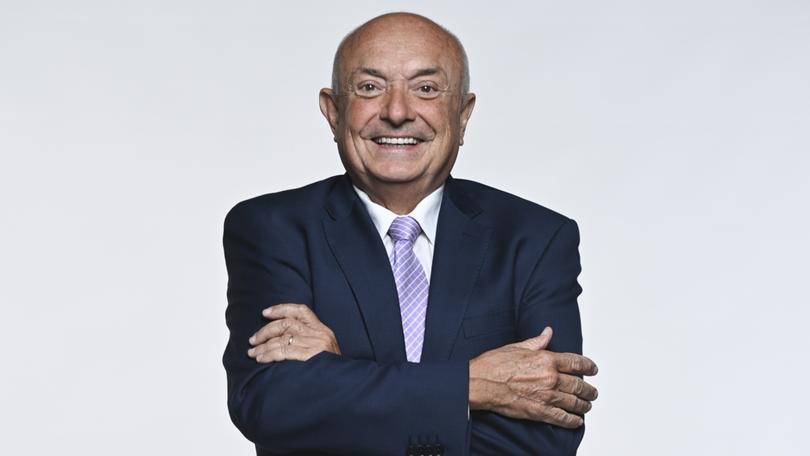Nick Bruining: After 35 years in the game, here’s what I KNOW you need to look for in a financial adviser
MUST READ: Your Money’s Nick Bruining has been in the financial advice game for 35 years. He’s seen it all. Here’s his checklist to make sure your adviser is a legend and not just a money-sucking lemon.

It was a jaw-dropping revelation from a colleague in the financial advice industry.
A new client who had been with another financial adviser for a number of years had been mistakenly over-paid thousands of dollars in Centrelink benefits.
Once identified, the client will have to re-pay the money, even though the adviser was, supposedly, providing regular updates to Centrelink.
Sign up to The Nightly's newsletters.
Get the first look at the digital newspaper, curated daily stories and breaking headlines delivered to your inbox.
By continuing you agree to our Terms and Privacy Policy.The planner promotes a “complete” retirement service.
Collecting one per cent of the funds under management for the past eight years, it’s been a profitable exercise. On an average account balance of $900,000, the client would have paid out about $9000 a year.
This case highlights the glaring differences in service standards between financial advisers, and the lack of a clear definition of what’s expected when you engage one.
More importantly, are you receiving reasonable “bang for your buck”?
This scribe has been in the game for 35 years and has seen and heard it all.
What follows is what I believe makes a good financial adviser for those approaching, or in, retirement.
Beware the adviser who tries to impress you with their knowledge or blind you with jargon. Be highly suspicious of someone who presents as an investment soothsayer who can predict market movements. It’s garbage — they can’t.
At best, good planners use relevant real economic data to make subtle changes to portfolios to take advantage of trends, while reflecting your specific individual plans for the future.
Beware the adviser who is only interested in managing the money and provides lip-service to the other, arguably more important, aspects of your life, particularly in the latter years.
That includes taxation, Centrelink benefits, concession cards, help at home, aged-care packages and, finally, residential aged care. Your adviser should be across it all — in detail.
Your adviser should be your confidant. You should be able to trust them enough to lay all and everything on the table in the knowledge that they’ve “got your back”. No different to your long-term family doctor, accountant or lawyer.
Like any good professional, sometimes they’ll tell you things you want to hear and, sometimes, what you don’t want to hear. You know they’ll always talk to you, in good times or bad, whenever you have a concern or question. That doesn’t mean a formal sit-down review, just access whenever it’s needed.
The adviser should engage with and respect each member of a couple and give equal importance to the views of both.
Be careful of a planner who wants to make your life more complicated.
Retirement should be about making things as simple as possible. That reason alone is why I almost never suggest things like self-managed super funds.
Sure, they have a purpose. But, in my view, some advisers use SMSFs as a way of embedding themselves into your financial affairs.
Unless you’re directly investing into property and, even more specifically, commercial property, you can almost always do it cheaper using low-cost public offer schemes.
Someone who presents as providing retirement services should be the one liaising with Centrelink on your behalf. Sure, you need to still keep an eye on things, but someone professing to be an expert retirement planner should be a Centrelink guru.
Beware the adviser who is only interested in managing the money and provides lip-service to the other, arguably more important, aspects of your life, particularly in the latter years.
I’ve seen hundreds of clients — some multi-millionaires — who missed out on valuable concessions and payments simply because their existing “retirement financial adviser”, had no real idea how that system works.
You’ll know your adviser is on top of things because they will have access to the Government’s PRODA system. It’s an identity verification and authentication system to securely access government online services. You will have been asked to signed an authority that allows them to access and update all of your Centrelink records.
This is much the same way an accountant liaises with the Australian Taxation Office on your behalf.
The good planner organises the withdrawal from your superannuation for the new car and notifies Centrelink of the changes when you take delivery.
They’ll be the one suggesting the depreciation of the value of the new car and updating those values for you each year. You still need to keep an eye on things but a letter from Centrelink telling you of the changes will tell you the planner’s doing their job.
So while I’m now expecting to be bombarded with abusive messages from other planners, Your Money readers should know the good planners are out there and what, I think, you should be reasonably expecting.
For straight-forward suggestions on how to pick a good financial adviser, search “Nick Bruining Retirement Podcast”
Nick Bruining is an independent financial adviser and a member of the Certified Independent Financial Advisers Association

